MEPs insist to have a say in changing Schengen rules
Ralitsa Kovacheva, July 8, 2011
 Migratory influx from North Africa should not be used as a pretext for reintroduction of internal borders within the European Union – this has been unanimously stated by MEPs from all groups and countries during the debate on Schengen in the European Parliament on 6 July. Maros Sefcovic, Vice President of the European Commission and Commissioner for interinstitutional relations and administration, briefed the deputies on the latest developments on the issue, including the decisions of the European Council of 23 and 24 June.
Migratory influx from North Africa should not be used as a pretext for reintroduction of internal borders within the European Union – this has been unanimously stated by MEPs from all groups and countries during the debate on Schengen in the European Parliament on 6 July. Maros Sefcovic, Vice President of the European Commission and Commissioner for interinstitutional relations and administration, briefed the deputies on the latest developments on the issue, including the decisions of the European Council of 23 and 24 June.
“The European Council agreed that there is a need for an EU based mechanism  to respond to the exceptional circumstances which might put at risk the overall functioning of Schengen cooperation. … Any such mechanism would need to be done in a way which does not put into question the principle of free movement of persons. … In the framework of this EU based mechanism a safeguard clause could be envisaged as a very last resort, allowing exceptional reintroduction of internal border controls in a truly difficult situation for a strictly limited scope, geographically limited and for a minimal period of time when a member state fails to fulfill its obligations under Schengen rules. … Establishing a coordinated, EU based response would allow all European interests to be taken into account and limit unilateral initiatives by member states to reintroduce internal borders.”
to respond to the exceptional circumstances which might put at risk the overall functioning of Schengen cooperation. … Any such mechanism would need to be done in a way which does not put into question the principle of free movement of persons. … In the framework of this EU based mechanism a safeguard clause could be envisaged as a very last resort, allowing exceptional reintroduction of internal border controls in a truly difficult situation for a strictly limited scope, geographically limited and for a minimal period of time when a member state fails to fulfill its obligations under Schengen rules. … Establishing a coordinated, EU based response would allow all European interests to be taken into account and limit unilateral initiatives by member states to reintroduce internal borders.”
 Carlos Coelho, MEP (EPP, Portugal), who was EP's rapporteur on the assessment of Bulgaria's and Romania's readiness to join Schengen, said that the Commission's position was fully in line with the recommendations of the European Parliament. According to him, Schengen should be strengthened and developed, but “aiming to unilaterally introduce border checks is a populist measure and a threat to our common heritage.” We should send a clear message to member states for more solidarity and burden-sharing, we should strengthen Frontex with more resources and have a real Schengen evaluation system, the lawmaker said. The EPP does not preclude the imposition of sanctions on countries that fail to comply with the Schengen acquis, as a last resort.
Carlos Coelho, MEP (EPP, Portugal), who was EP's rapporteur on the assessment of Bulgaria's and Romania's readiness to join Schengen, said that the Commission's position was fully in line with the recommendations of the European Parliament. According to him, Schengen should be strengthened and developed, but “aiming to unilaterally introduce border checks is a populist measure and a threat to our common heritage.” We should send a clear message to member states for more solidarity and burden-sharing, we should strengthen Frontex with more resources and have a real Schengen evaluation system, the lawmaker said. The EPP does not preclude the imposition of sanctions on countries that fail to comply with the Schengen acquis, as a last resort.
“Sanctions, as well as the possibility of reintroduction of controls at the borders  of a Member State should be a last resort, but they must exist, because without precautions there is no sense to make evaluations, which are quickly forgotten. The balanced position we should defend, is to recognise that sanctions are needed, but in a strictly defined framework of the evaluation mechanism, controlled by the Commission,” Bulgarian MEP Maria Nedelcheva (EPP-GERB) stated. During the debate Ms Nedelcheva stressed that any decision on the introduction of sanctions and temporary control on the borders of a member state must be preceded by precise criteria, defined in advance, without any opportunity for change.
of a Member State should be a last resort, but they must exist, because without precautions there is no sense to make evaluations, which are quickly forgotten. The balanced position we should defend, is to recognise that sanctions are needed, but in a strictly defined framework of the evaluation mechanism, controlled by the Commission,” Bulgarian MEP Maria Nedelcheva (EPP-GERB) stated. During the debate Ms Nedelcheva stressed that any decision on the introduction of sanctions and temporary control on the borders of a member state must be preceded by precise criteria, defined in advance, without any opportunity for change.
 The group of Socialists and Democrats is much more reticent about member states' intention to change the Schengen rules. Claude Moraes MEP (S & D, the UK) said: “We will oppose any new Schengen mechanism that has any other objective than enhancing freedom of movement and reinforcing EU governance of the Schengen area. Moreover, any change will have to be agreed in co-decision with the European Parliament.”
The group of Socialists and Democrats is much more reticent about member states' intention to change the Schengen rules. Claude Moraes MEP (S & D, the UK) said: “We will oppose any new Schengen mechanism that has any other objective than enhancing freedom of movement and reinforcing EU governance of the Schengen area. Moreover, any change will have to be agreed in co-decision with the European Parliament.”
According to Bulgarian MEP Iliana Yotova (PASD, BSP), the  Council's proposal for a new mechanism would not be a reform, but would deprive of meaning the very idea of Schengen. With regard to the requests from some members the evaluation criteria to be changed, Ms Yotova asked how an accurate measure of corruption and the fight against crime would be defined. These criteria were the reason Bulgaria's and Romania's membership to Schengen to be postponed, despite the implementation of technical requirements. “In which column exactly of the new mechanism will you put both countries, as the Council is mixing Schengen criteria with the Cooperation and Verification Mechanism (CVM) of the European Commission?" Ms Yotova asked.
Council's proposal for a new mechanism would not be a reform, but would deprive of meaning the very idea of Schengen. With regard to the requests from some members the evaluation criteria to be changed, Ms Yotova asked how an accurate measure of corruption and the fight against crime would be defined. These criteria were the reason Bulgaria's and Romania's membership to Schengen to be postponed, despite the implementation of technical requirements. “In which column exactly of the new mechanism will you put both countries, as the Council is mixing Schengen criteria with the Cooperation and Verification Mechanism (CVM) of the European Commission?" Ms Yotova asked.
 This issue was highlighted by Timothy Kirkhope too, MEP from the European Conservatives and Reformists (the UK). According to him, it is necessary to strengthen the evaluation mechanism for countries entering the Schengen area, including with a much stronger focus on prevention of corruption, fighting crime and independence of the judiciary.
This issue was highlighted by Timothy Kirkhope too, MEP from the European Conservatives and Reformists (the UK). According to him, it is necessary to strengthen the evaluation mechanism for countries entering the Schengen area, including with a much stronger focus on prevention of corruption, fighting crime and independence of the judiciary.
On behalf of the Alliance of Liberals and Democrats for Europe, Ms  Renate Weber (Romania) stated: “Instead of welcoming the switch to democratic regimes in some countries in North Africa and instead of putting more energy and imagination on assisting the peoples there, a couple of governments (and what an irony - EU founding countries!), afraid that 25 000 persons, coming to the EU, would affect their stability, considered that the best protection of their own borders would be to close them back. Other governments considered that reinstating border controls is an efficient way to fight organised crime, as if criminals were rules followers”. She stressed that the Liberals would not accept a new mechanism that would affect the Schengen acquis and the spirit of European integration.
Renate Weber (Romania) stated: “Instead of welcoming the switch to democratic regimes in some countries in North Africa and instead of putting more energy and imagination on assisting the peoples there, a couple of governments (and what an irony - EU founding countries!), afraid that 25 000 persons, coming to the EU, would affect their stability, considered that the best protection of their own borders would be to close them back. Other governments considered that reinstating border controls is an efficient way to fight organised crime, as if criminals were rules followers”. She stressed that the Liberals would not accept a new mechanism that would affect the Schengen acquis and the spirit of European integration.
Commissioner Maros Sefcovic told deputies that in September the Commission would propose a mechanism to respond to the exceptional circumstances, as well as a proposal for an updated system for Schengen evaluation. According to the Commission, the mechanism must be based on Article 77 of the Treaty on the Functioning of the EU, in order to be subject to an ordinary legislative procedure, which ensures full and equal participation of the European Parliament.
As for Denmark, which has unilaterally decided to resume checks on its borders, the Commission had requested the information that is currently being evaluated. The Commission wants to know how exactly border checks are being carried out, in order to assess whether they are in line with the free movement rules, Commissioner Sefcovic said concisely.
In a resolution, adopted by a large majority, the European Parliament reiterated its “firm opposition to any new Schengen mechanism with objectives other than those of enhancing freedom of movement and reinforcing EU governance of the Schengen area”. MEPs believe that any new additional exemptions, such as new grounds for reintroducing border controls, "would definitely not reinforce the Schengen system".
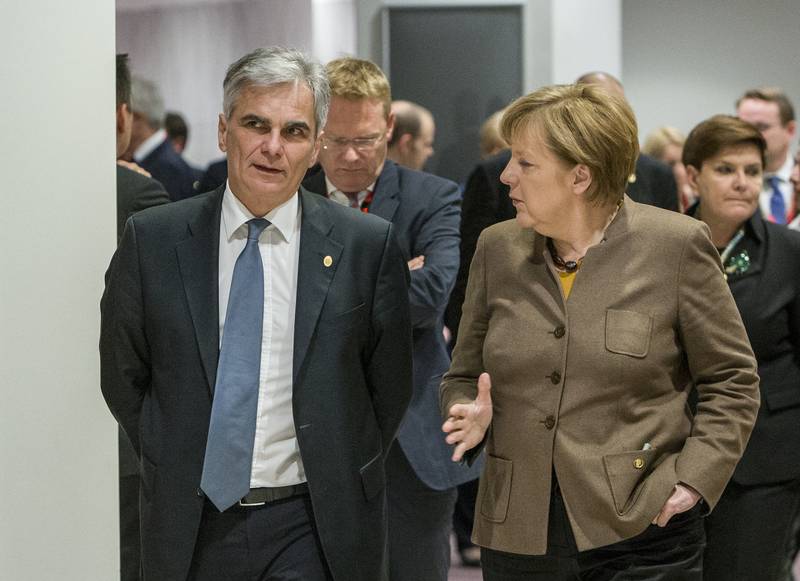 Werner Faymann, Angela Merkel | © Council of the EU
Werner Faymann, Angela Merkel | © Council of the EU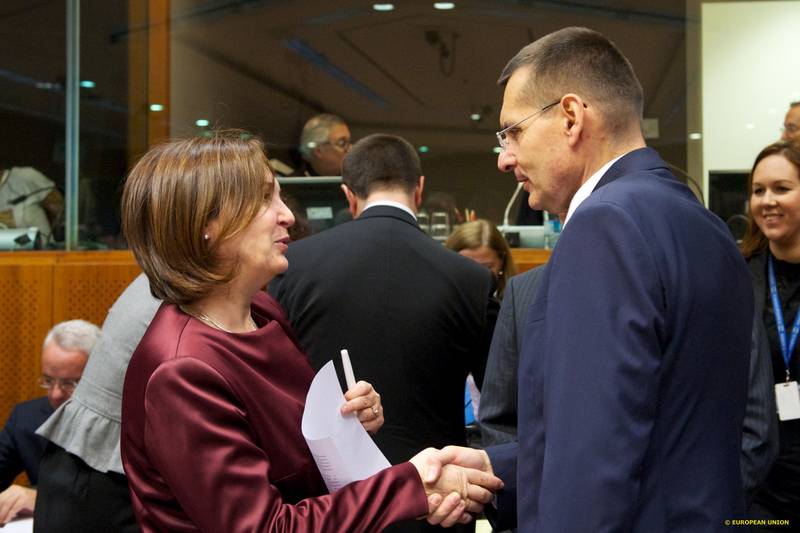 Rumyana Bachvarova, Petre Toba | © Council of the EU
Rumyana Bachvarova, Petre Toba | © Council of the EU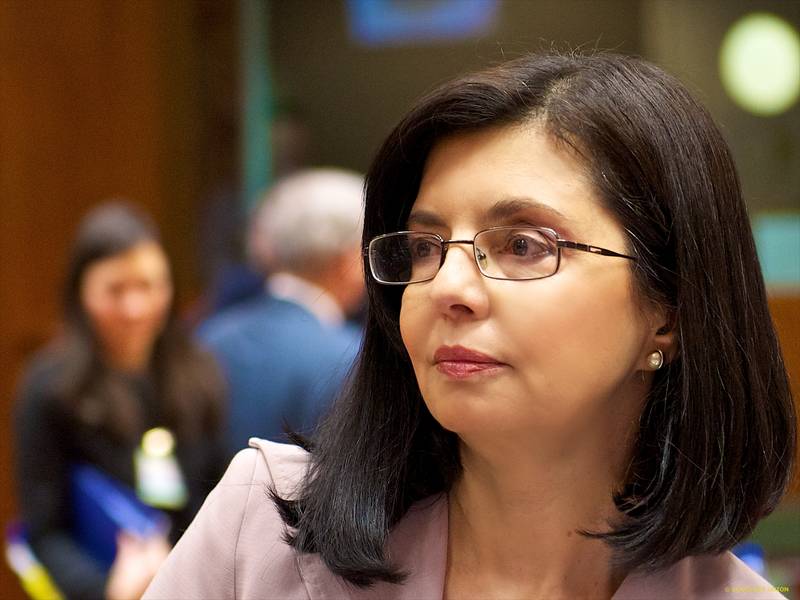 Meglena Kuneva | © Council of the EU
Meglena Kuneva | © Council of the EU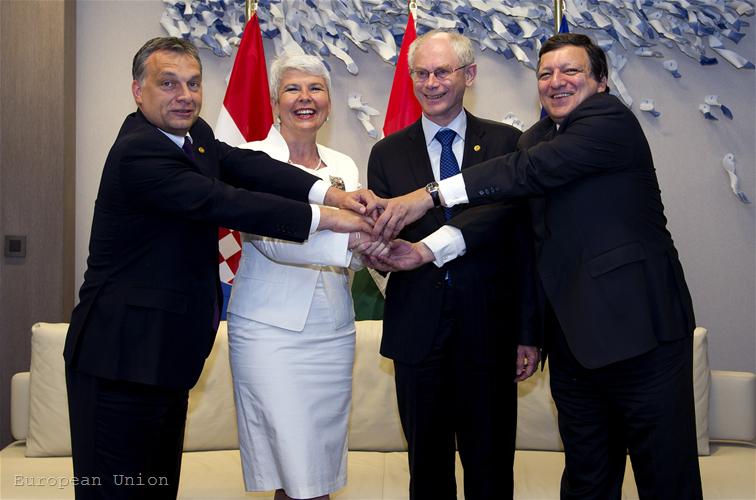 | © European Union
| © European Union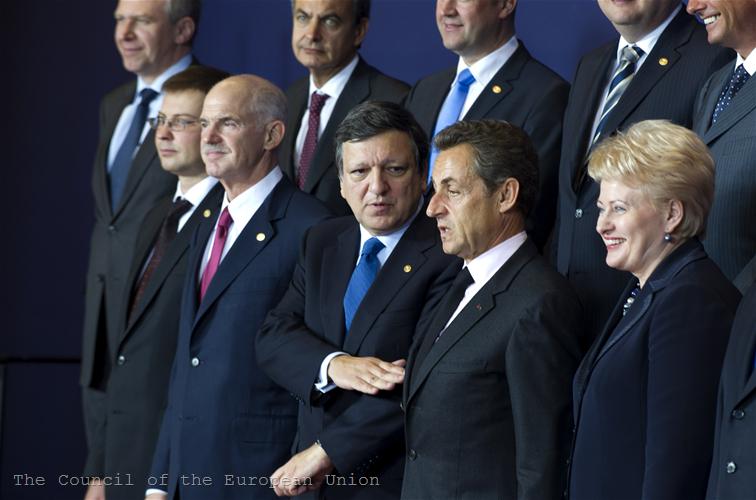 | © The Council of the European Union
| © The Council of the European Union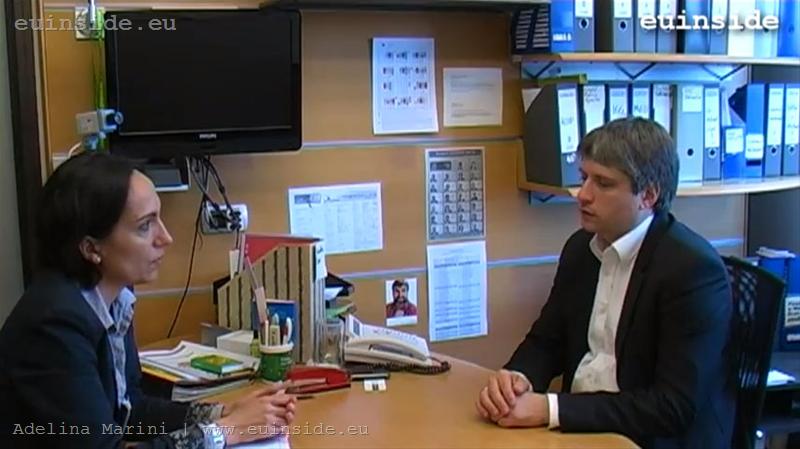 | © euinside
| © euinside